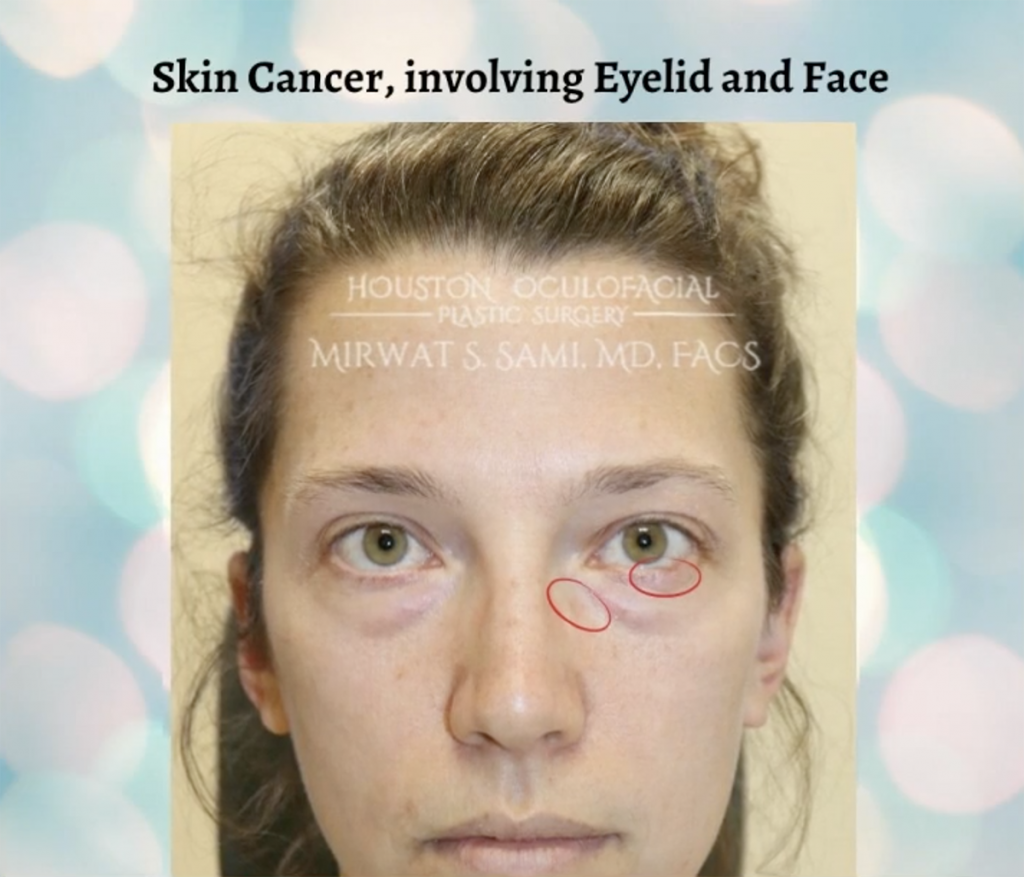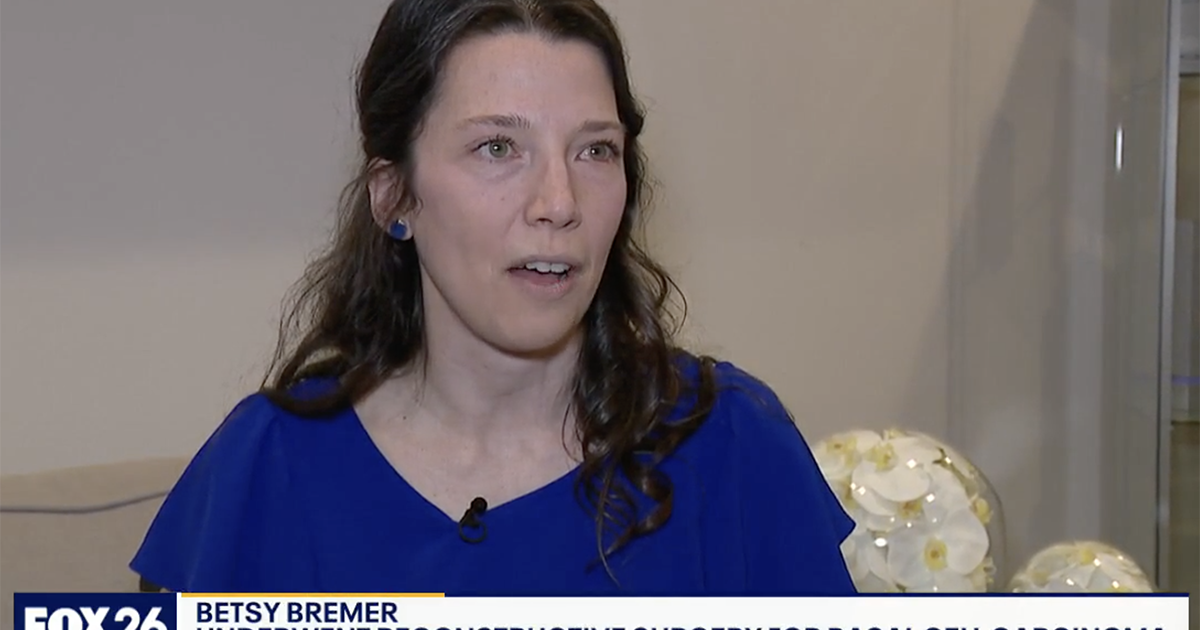How to Protect Your Skin From Skin Cancer
- A young woman from Houston, Texas, is sharing her skin cancer story as she recovers from surgery in order to raise awareness and encourage others to protect their skin from the sun.
- Now is the time of year when the weather starts to warm up and people begin to shop for bathing suits in preparation for summer; it’s important to remember to protect your skin from skin cancer this summer.
- SurvivorNet experts say that something as simple as putting sunscreen on can reduce your chances of getting skin cancer, specially melanoma, by up to 50%.
Betsy Bremer told FOX 26 Houston that she typically "does her best" to protect her skin. But because she knew about the warning signs of melanoma, she became concerned when bumps on her face started to change color.
Read More
The surgery Betsy underwent was invasive; half of her lower left eyelid and nose were missing.
"It was worse than I thought it would be," Betsy said. "At the dermatologist, they asked me if I wanted to see it and when I looked in the mirror, I think I had my first panic attack because there was a pretty big crater on my nose and a lot of my eyelid was missing."
Luckily, Betsy found hope in Dr. Mirwat Sami, who performed plastic surgery to repair both Betsy's eyelid and nose.
"My plastic surgeon was a miracle worker, and it looks great now," Betsy said of her doctor from Houston Oculofacial Plastic Surgery. "But it was hard to picture that when I saw the original. The starting point to now is pretty drastic."
Betsy is now sharing her story because she thinks there are others out there with skin cancer who don't know it yet. She wants people to know that early detection is key, and be on the lookout for anything "pink, red or crusty" on your skin that stubbornly won't heal.
How to Protect Your Skin From Skin Cancer
The Skin Cancer Foundation estimates that more than 5 million cases of skin cancer are diagnosed in the United States every year, making it the most common cancer in the U.S. Basal cell carcinoma counts for about 3.6 million of those cases per year.
Now is the time of year when the weather starts to warm up and people begin to shop for bathing suits in preparation for summer; it’s important to remember to protect your skin from skin cancer this summer.
Top 5 Ways to Protect Your Skin From Skin Cancer
Dr. Dendy Engelman, a board certified dermatologic surgeon at Shafer Clinic Fifth Avenue, previously told SurvivorNet about the top five things you can do to avoid skin cancer:
- Avoid sun during peak hours: 10 a.m. to 2 p.m.
- Wear a wide brimmed hat and sunglasses to protect the tops of our heads, the tops of our ears and the delicate area around the eye
- Wear at least SPF 30 sunscreen and make sure to reapply every two hours or after excessive sweating or swimming
- Have yearly skin checks (with a professional) because it is difficult to evaluate areas all over the body
- Avoid tanning beds; there are no "good" tanning beds, and they can significantly increase your risk of skin cancer
Dr. Cecilia Larocca, a dermatologist at the Cutaneous (Skin) Cancer Treatment Center at the Dana-Farber Cancer Institute in Boston, Mass., previously told SurvivorNet that something as simple as putting sunscreen on can reduce your chances of getting skin cancer, specially melanoma, by up to 50%.
Choose the Right Sunscreen and Use it Often
"When it comes to squamous cell, basal cell and melanoma, even some rare cancers like Merkel cell carcinoma, protecting ourselves from the sun can reduce that risk," she said. "I love telling my melanoma patients when they come in that that's one thing they can really take control over when they come home."
"When it comes to melanoma, if you use sunscreen, there was this great study that came out of Australia that if patients used sunscreen consistently over a period of ten years, they were actually able to reduce their risk for melanoma by 50 percent," she added.
But no matter how vigilant you are about decreasing your risk for skin cancer, it is important to still prioritize routine check-ups with your dermatologist, and always be on the lookout for any skin changes (like Betsy did) in between visits.
Learn more about SurvivorNet's rigorous medical review process.


